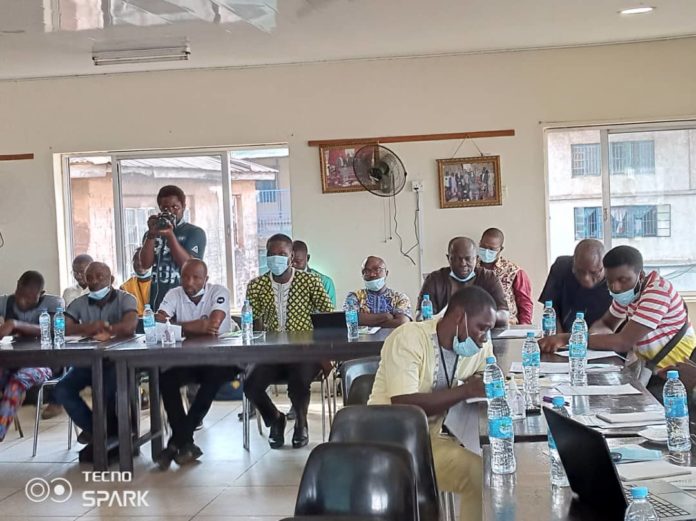By Mary Kabay
City Learning Platform, in collaboration with its partner organizations on Friday 21 January 2022 held a day conference for multi-stakeholder organizations geared towards discussing issues related to planning of city programmes as well as slum upgrading.
The event, which was well attended by international non-governmental organizations, non-governmental organizations and community based organizations was meant for the development and inclusion of all these bodies to become a unified unit that will become an agent of change in the country especially for slum related issues.
Joseph Marcathy, from the City Learning Platform gave a recap of their previous programs they have conducted stating how they are using the participatory approach further disclosing that this is the fourth event they have so far organized.
He stated that this should be time for reflection maintaining how no single organization can handle disaster issues in the country disclosing that most of the activities that some organizations have embarked on in that direction appeared to be fruitless.
Joseph Marcathy continued that the desire of the Sierra Leone Urban Research Centre is to promote development stating that the City Learning Platform has been engaging organizations and their development partners on principles of engagement and livelihood activities as they are central to community residents.
He said giving attention to deprived communities is what the fourth edition of their programmes is all about with special emphasis on slum upgrading through direct or indirect discussions as well as contributing to slum upgrading.
The keynote speaker for the event, who works as a Researcher for the International Institute for Environment and Development, Dr Alexandre Aspan Frediani, touched on the methodology of community area planning. He underscored the importance of the participatory approach to slum upgrading and spoke about responsive urban development limitations, coordinating and democratizing urban governance, strengthening existing networks of social mobilization and addressing challenges of urban development.
Dr Alexandre Aspan Frediani also elaborated on what is needed to be in place to achieve those goals of which he identified local mobilization, methodologies and expertise, multi level governance structure, enabling supportive policy and planning frameworks and sustained programmatic interventions.
Climaxing his address, he spoke on policy planning and mentioned countries that are into it and its benefits to economies maintaining that Sierra Leone should try to embrace the participatory slum upgrading approach or model.
Alusine Sesay, an intern from the FCC Mayor’s Delivery Unit and Sheikh Mohamed Npha Janneh Planning Technician of the FCC Mayor’s Delivery Unit made important contributions.
They highlighted the problems of informal settlements in the city which give rise to people residing in slums and disaster-prone areas, levels of urban degradation and loss of green spaces.
Also, they talked of the vision of the Freetown City Council which, according to them includes, slum relocation and provision of new affordable housing schemes.
Director of Relief and Response at the National Disaster Management Agency, Sinneh Mansaray touched on the area of Informal Settlement Regeneration in Post Disaster periods. He maintained that there is no one organization that can control disaster issues.
Explaining the role of the National Disaster Management Agency in the country he said the power is vested in them to control disasters, to undertake relief and response functions, focus on mitigation and reducing disaster risks as he makes references to the Susan’s Bay and Kroo Bay disasters where the NDMA played major roles.
The various organizations present during the meeting were divided into three focus discussion groups were as the Director of Research at the Sierra Leone Urban Research Centre, Brima Koroma climaxed the event with a plenary session and spoke on key supporting mechanisms and recommendations.




